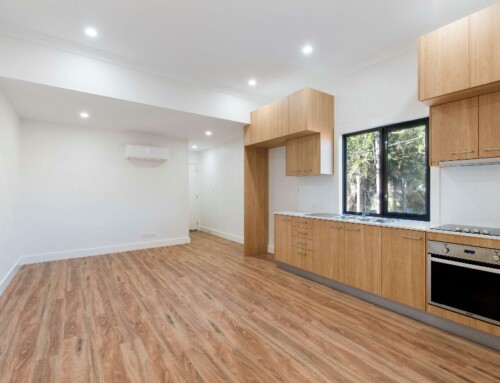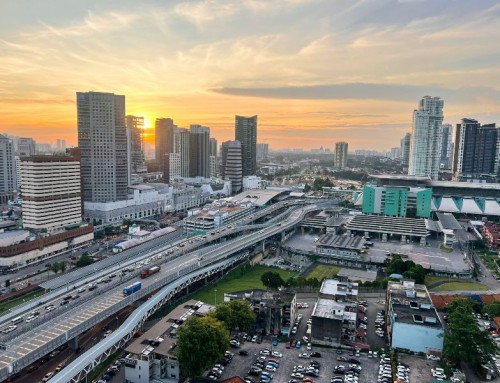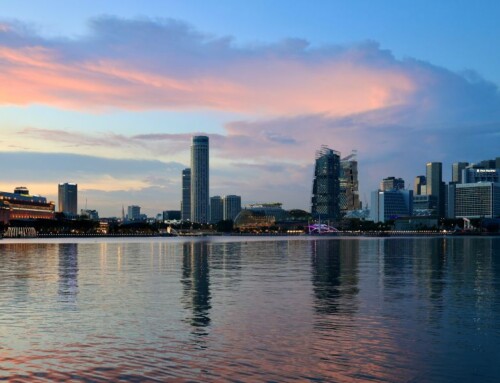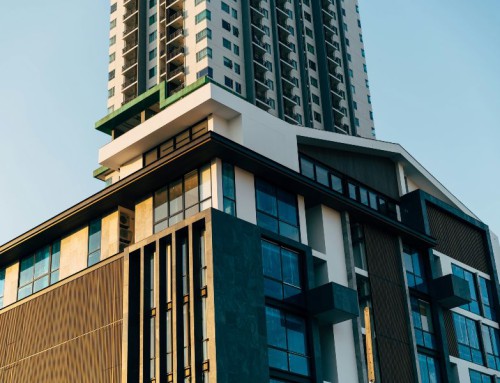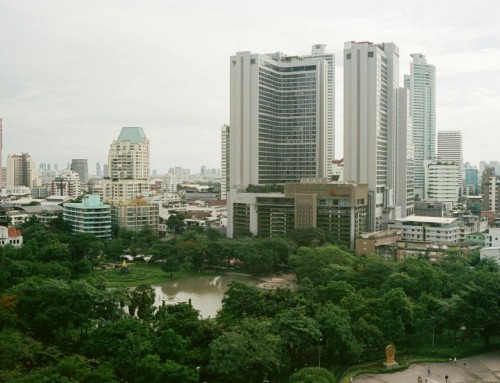Buying a Thailand property
Buying Considerations
- FOREIGNERS CAN ONLY PURCHASE CONDOMINIUMS
Property investment for foreigners in Thailand is only limited to condominiums. For every condominium project, foreigners can only own up to a maximum of 49% of the total square area. Thus, it is important to check with the agent or salesperson if the quota for foreigners to own the property has been exceeded. - ONLY QUALIFIED FOREIGNERS CAN PURCHASE CONDOMINIUMS
Natural foreign persons
For natural foreign persons, one of the following requirements must be satisfied to qualify for the purchase of a property in Thailand:- Possess a residence permit in Thailand under the Immigration law;
- Permitted to enter into Thailand under the investment promotion law;
- Able to bring in the entire sum of monies for purchase of the condominium unit in the country in foreign currency (Section 19 of the Condominium Act)
Non-natural foreign persons (i.e. companies, partnerships, associations etc.)
For non-natural foreign persons, one of the following requirements must be satisfied to qualify for the purchase of a property in Thailand:- Falls within the definition of a “juristic person” set out in Section 97 and 98 of the Land Code AND registered as a “juristic person” under Thai law
- Qualify as foreigners under the section 4 Foreign Business Act and have obtained promotion certificate under investment promotion law
- Able to bring in the entire sum of monies for purchase of the condominium unit in the country in foreign currency (Section 19 of the Condominium Act)
Foreigners who bring in entire sum of monies for purchase of the condominium unit
It is necessary that funds that have been used for the purchase of condominium be correctly recorded on a Foreign Exchange Transaction Form (FET form). This FET form is issued by the Thai bank on receipt of the full purchase price of the condominium unit in foreign currency and is proof of the remittance and exchange of foreign currency into Thai baht by the foreigner. It is also important to state in the Foreign Exchange Transaction Form that the remittance has been solely made for the purchase of a condominium in Thailand. - BANK FINANCING OF PURCHASE OF CONDOMINIUMS BY FOREIGNERS
There are currently 2 banks providing mortgage for foreigners to purchase property in Bangkok, namely Bangkok Bank and United Overseas Bank(UOB). These loans are provided offshore and are denominated in foreign currencies. - LANGUAGE OF SALE AND PURCHASE AGREEMENT
The sale and purchase of the contract is in the Thai language. It is, therefore, necessary to get a Thai lawyer for advice for any sales or purchase transactions. - STATUTORY PROTECTION FOR BUYERS
Condominium Act
The Condominium Act provides three-fold protection for buyers.- The marketing materials used by developers are deemed to be part of the contract of sale of condominium units and therefore the developers held responsible for for the accuracy of the marketing materials.
- Developers are responsible for the payment of the portion of the condominium’s taxes and management and maintenance expenses associated with unsold units.
- Developers must provide contracts of sale conforming to government guidelines. Any clauses which are inconsistent with the government guidelines and not in favour of the prospective buyer are unenforceable.
Escrow Act
The Escrow Act, (which is optional for buyers), provides further protection for buyers who have paid a deposit to the developer. Under the Escrow Act, the developer cannot use these deposits if it goes bankrupt. - NO RESTRICTIONS AGAINST RENTAL OR SALE OF CONDOMINIUM UNITS
There are generally no restrictions against rental or sale of condominium units. However, some condominiums may restrict or control leasing. It is therefore important to check if such restrictions exist before making a purchase. - COMMISSION FOR AGENTS TO FIND TENANTS
The commission for agents to find tenants is normally one month for a year’s tenancy. The commission for agents for selling is about 3-5% of the selling price.
Buying procedure
- DUE DILIGENCE
Due diligence is to be done before any purchase. In particular, a title search with the Thailand land department should be done. There is a need to verify the owner of the land or apartment as well as to ascertain if there are any encumbrances on the property. An engineer’s inspection is also recommended. This is to ensure that the property is structurally sound and that the electrical and plumbing systems are in good working order. - DRAWING UP THE CONTRACT
After being satisfied with the property, a lawyer or property agent will draft a contract. A good faith deposit of a few thousand dollars can be given once the drafting commences or after the contract has been drafted. In return, the seller will reserve the property for you and start the process of drafting the contract for purchase. You can request for a ‘get out’ clause in the agreement, for example, “subject to clear title” or “subject to agreement on the contract”. This will make the deposit refundable if the specified condition is not fulfilled.
The draft contract can be amended by the lawyer, the agent, the seller or the buyer. Once the terms of the contract are agreeable by all parties, a deposit must be paid. - SIGNING THE CONTRACT
The contract is finalized upon the signing of the contract. Before the signing, it is advisable to have a final inspection of the property. If a housing loan is taken for the purchase, it is necessary to ensure that the title to the property is held in the mortgage bank’s name. After paying for the balance nett of the deposit, the contract is signed and the process is completed.
Selling procedure
-
- PRELIMINARY ISSUES
- No citizenship restrictions on sale of condominium units
Foreigner-owned condominiums offer the flexibility of being able to sell to both foreigners and locals. However, the 49% quota for foreigner ownership of the project still applies. - Engagement of agent
For selling, approach an agent and a lawyer to safeguard your interests as the process is mainly in Thai. The agent will market your unit and find a prospective buyer. Once the buyer is interested in the purchase, the negotiation process will take place.
- No citizenship restrictions on sale of condominium units
- DRAWING UP THE CONTRACT
During the negotiation process, the terms of the contract will be ironed out. You should request the buyers to put a good faith deposit during this process. Your lawyer will assist in drafting the contract. The transfer fees payable for the transfer of the title will also be negotiated by the sellers and the buyers. Normally, this will be paid 50% by the sellers and the buyers respectively. - SIGNING THE CONTRACT
Once the terms are drafted, the buyers and sellers will then sign and finalise the documents. The payment of the balance nett of the deposit and the taxes will be paid by the buyers. The sellers will also have to pay all the relevant taxes, agent and conveyance costs. Evidence of money transferred from abroad to the value of the condominium must be also recorded in the FET Form.
- PRELIMINARY ISSUES
Taxes
-
-
-
- BUYING
- Transfer fees of 2% of the Land Department’s official appraised value (OAV) of the condominium unit payable by the buyer. This is usually shared by mutual agreement by the buyers and sellers in a 50:50 arrangement.
- HOLDING
- Rental
- Rental of property is taxed at 12.5% of the annual rental value.
- For a corporate entity, there will be an additional 5% income tax.
- There are no gift and inheritance taxes.
- Rental
- SELLING
- Within 5 years, a specific business tax of 3.3% of the OAV or the actual sale price, whichever is greater, is payable by the seller. More than 5 years, a stamp duty of 0.5% of the OAV or the actual sale price, whichever is greater, is payable by the seller. Withholding tax (WHT) is also payable by the buyer (on behalf of the seller) from the proceeds of the sale.
- Where the seller is a company, the WHT on the sale of the property is calculated at 1% of the OAV or the contracted sale price, whichever is greater.
- Where the seller is an individual, the WHT is based on the individual’s marginal tax rate after deducting from the OAV a standard deduction based on the number of years of ownership. This is subject to the maximum WHT rate of 20% of the actual sale price.
- BUYING
-
-
Standard deduction based on number of years of ownership
| Years in possession | Expenses (% of selling price) |
| 1 | 92% |
| 2 | 84% |
| 3 | 77% |
| 4 | 71% |
| 5 | 65% |
| 6 | 60% |
| 7 | 55% |
| 8 or more | 50% |
Individual marginal tax rate
| Taxable income | Tax rate |
| 0 – 100,000 | 5% |
| 100,001 – 500,000 | 10% |
| 500,001 – 750,000 | 15% |
| 750,001 – 1,000,000 | 20% |
| 1,000,001 – 2,000,000 | 25% |
| 2,000,001 – 4,000,000 | 30% |
| Above 4,000,001 | 37% |
Read about my personal experience purchasing a property in Bangkok here.
Other articles about investing in Thailand which you may find interesting:
The good locations for property investment in Bangkok (2023 update)
Things to take note when investing in an overseas property
Thailand as a retirement destination

